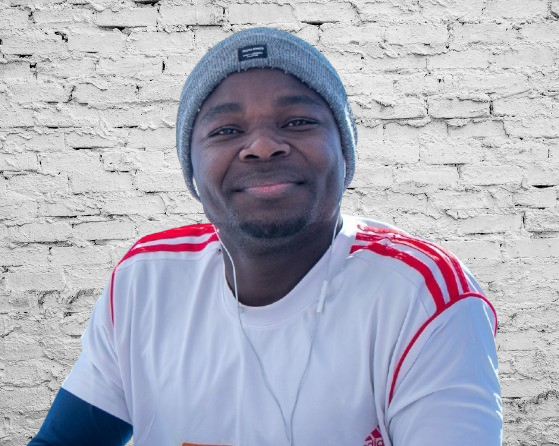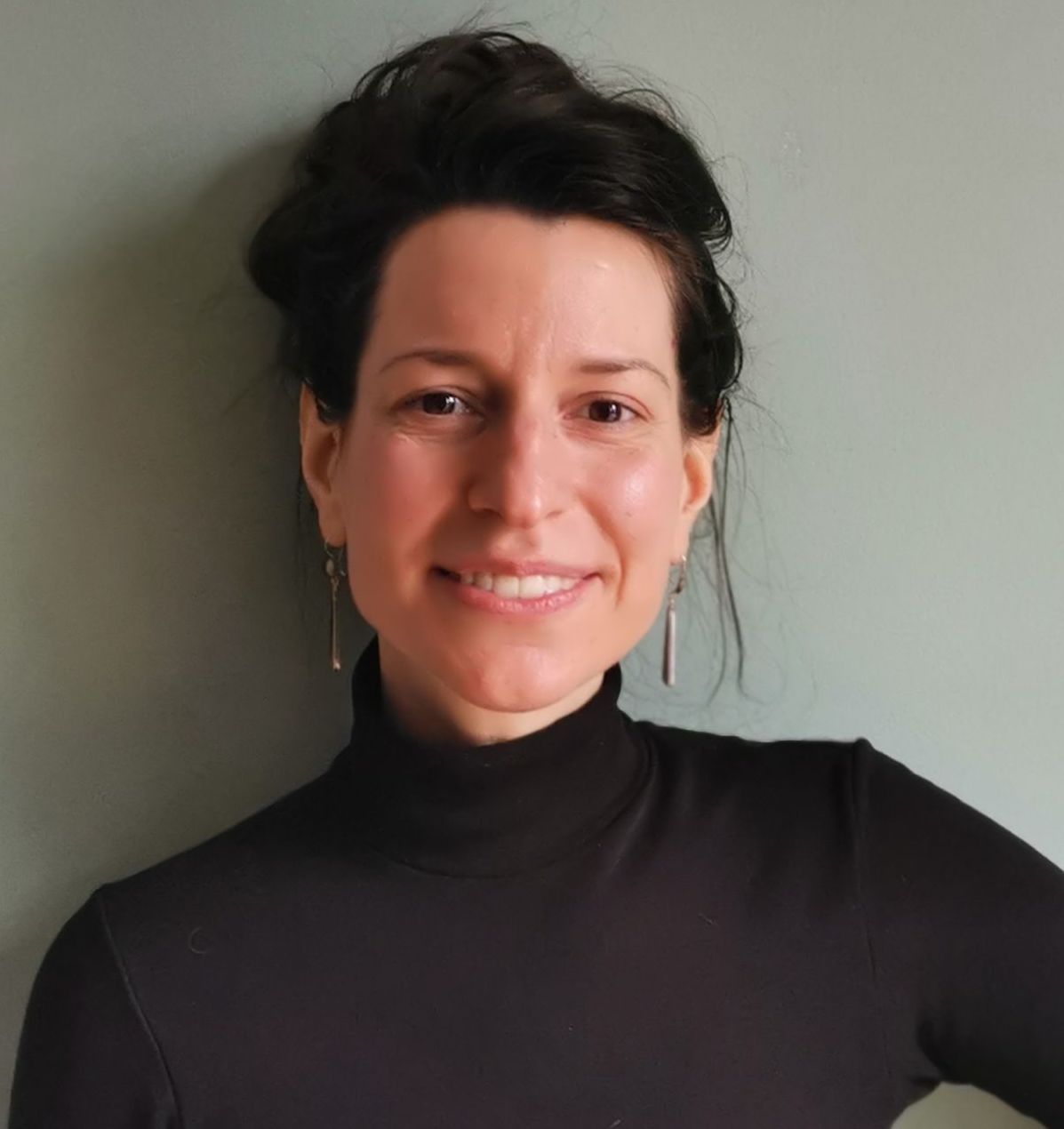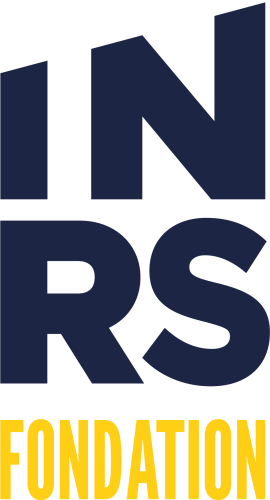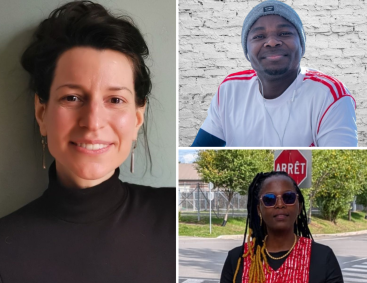Three INRS students have been awarded a $3,000 scholarship from the University of Quebec in recognition of the diversity of backgrounds and excellence within our student community. This support will help improve their study conditions. Congratulations to Rodrigue Ahodegnon, Marlyse Nankap Djangue, and Sophie Herrmann.
Our winners have been celebrated over the past few weeks at scholarship award ceremonies held at various INRS research and training centers.
Meet our three winners:
Rodrigue Ahodegnon, customized doctoral student in epidemiology and infectious disease prevention under the supervision of Professor Marie-Claude Rousseau

“Receiving this scholarship is an important step that will allow me to improve my doctoral studies and contribute to the advancement of my research. It will enable me to focus fully on my doctoral project.”
- What brought you to INRS? What stands out from your experience?
I always wanted to do a PhD after my master's degree in order to acquire and deepen my knowledge of essential concepts in my field, which is epidemiology. I began my doctoral project in Professor Marie-Claude Rousseau's laboratory, and she is supervising me throughout this journey. From the moment I arrived at INRS, I was struck by the quality of the research, the supervision, and the scientific rigor. The tailor-made programs are extremely valuable. I particularly appreciate my research team, which is very committed and provides tremendous support throughout my journey. - Can you describe the significance and impact of your research project?
My research project focuses on the very long-term protection conferred by the Bacille Calmette-Guérin (BCG) vaccine against tuberculosis and its potential effects on other infectious diseases. To date, there is little data on the actual long-term effectiveness of the BCG vaccine in the general population, as well as its effects on other infectious diseases. In addition, existing data have significant methodological limitations (misclassification of BCG status, low number of participants, etc.). This project, based on a Quebec birth cohort of more than 400,000 people born between 1970 and 1974 in Quebec, aims to fill these gaps, thanks in particular to the large size of the cohort and the existence of a BCG vaccination registry, among other advantages. This project will enable numerous innovative and unique scientific contributions to be made on the specific and non-specific effects of the BCG vaccine. This knowledge is particularly relevant in the current context, as it will be essential in informing the role of BCG when future tuberculosis vaccines become available. Public health decisions will then need to be based on a rigorous assessment of the benefits and drawbacks, taking into account long-term evidence on BCG. - What does winning this scholarship mean to you?
Receiving this scholarship is an important step that will allow me to improve my doctoral studies and contribute to the advancement of my research. It will enable me to focus fully on my doctoral project. Since this is the first scholarship I have received from an institution in Canada, it could also be decisive in my ability to obtain future scholarships. I am very grateful to the INRS Foundation for making this possible for students. - How do you see things progressing from here?
As I continue my studies, I will pursue my research while actively participating in various scientific conferences in order to share my work with the academic community. In addition, I will place particular emphasis on popularizing my work in order to make it accessible to a wider audience. The publication of scientific articles will be a key step in this journey, which will culminate in the defense of my thesis. In the longer term, I envisage a career in research, which will be made possible by the expertise I have developed during my tailor-made PhD in epidemiology and infectious disease prevention at INRS.
Marlyse Nankap Djangue, master's student in urban studies under the supervision of Professor Cédric Brunelle

“This scholarship represents a new source of confidence and motivation for me. It eases my financial pressure, allowing me to devote more time and energy to my research.”
- What brought you to INRS?
After seven years as a researcher at the National Cartographic Institute of Cameroon, I felt the need to return to school to strengthen my skills. While researching academic institutions, I discovered that INRS is the leader in Canada for training researchers. I enrolled there to improve my skills in spatial statistics, a field that is well developed within the Laboratory for Spatial Statistics and Urban Development (LADU). What strengthened my motivation was that, from our very first online contact, my supervisor, Professor Cédric Brunelle, immediately gave me his approval and included me in an ongoing project even before I was officially enrolled. - What have you learned from your experience?
Now that I am halfway through my training at INRS, I can say that my experience so far has been very rewarding. INRS stands out for its teaching approach focused on research practice, which promotes better assimilation of lessons and their practical application in scientific projects. I particularly appreciate the stimulating work environment. This experience has already allowed me to strengthen my scientific rigor and my autonomy at work. I have also noticed that my passion for research has been rekindled over time, as has my desire to continue in this field. - Can you describe the issue and impact of your research project?
My research project is entitled: “Impact of major construction projects on commercial dynamics in Montreal's central business districts.” It explores the repercussions of major construction projects on commercial dynamics (the closure of shopping centers, customer traffic, sales, supply, demand, etc.) in Montreal's central business districts and their degree of significance. The goal is to use the results to suggest that these impacts be fairly taken into account in the environmental and social management plan for construction projects, in order to generate possible solutions for local commercial players facing disruptions caused by urban redevelopment projects. - What does winning this scholarship mean to you?
This scholarship represents a new source of confidence and motivation for me. It eases my financial pressure, allowing me to devote more time and energy to my research. Thanks to this valuable support, I am confident that I will be able to complete my project and achieve my goals at INRS. I would like to express my deep gratitude to the University of Quebec Foundation. - How do you see things progressing from here?
After completing my master's degree next year, I plan to pursue doctoral studies. I want to further my research and continue to contribute to the advancement of knowledge in my field. This doctoral program is an essential step for me in achieving my professional goals.
Sophie Herrmann, customized doctoral student in cultural studies and museology under the supervision of Professor Nathalie Casemajor

“I am all the more honored because my career path has been marked by a return to school after more than ten years of professional experience as a cultural worker, and because I came specifically to Montreal for my doctorate, with all the social and financial challenges that this entails.”
- What brought you to INRS? What stands out from your experience?
I joined INRS in 2021, after more than ten years working in the cultural sector. My goal was to resume my academic studies, combining knowledge gained from practical experience in the visual arts with more fundamental knowledge, but also to begin a doctoral program at the intersection of social sciences and humanities, since I am originally an art historian. I was looking for an institution and supervision that would support me in a multidisciplinary approach and help me broaden my skills to include new methodologies. I would highlight the excellent support provided by Professor Nathalie Casemajor in my doctoral work and the quality of the human relationships in the supervision of my research. - Can you describe the scope and impact of your research project?
One aspect of my research focuses on visitors' attention in art museums: how do they feel in these institutions? How do they perceive time during a visit? Is there a specific type of attention paid to museums, and to art museums in particular? This is an absolutely fascinating phenomenological and aesthetic question. A second aspect of my work involves understanding the extent to which this type of museum attention is being reconfigured by the use of digital tools today. These questions have not really been addressed in recent or current scientific research. In general, attention in museums has been treated in a “self-interested” way (for example, we measure the attention of audiences to understand whether an exhibition is “effective”).
Furthermore, the impact of digital technology on attention in museums has been studied very little. When it is mentioned, it is often in a reductive and polarized way: digital technology is detrimental to attention, while the absence of digital technology promotes it. The forms of attention and modes of appropriation of works and museums are much more complex and unique than these dichotomous modalities suggest. This is precisely the subject of my thesis. - What does winning this scholarship mean to you?
I am very honored to receive this scholarship. It encourages me to continue on my path in research and to mobilize multidisciplinary approaches. I am all the more honored because my career path has been marked by a return to school after more than ten years of professional experience as a cultural worker, and because I came specifically to Montreal for my doctorate, with all the social and financial challenges that this entails. My profile is also unique within INRS, as my initial training is more focused on art history and museology, for which I obtained two master's degrees, than on urban studies and social sciences. I therefore believe I offer an original perspective on certain current issues—something that this scholarship, in my opinion, highlights and encourages. - How do you see things progressing from here?
I would like to do a postdoctoral fellowship and continue my research on attention in museums and visual arts venues. I am very interested in sensory approaches and the coexistence of different temporalities among visitors to cultural venues. I am particularly interested in the attention, sensitivity, and perception of temporalities among people with disabilities or neurodivergent individuals when they visit museums. So, stay tuned!
We would like to thank the Fondation de l’Université du Québec for its ongoing support, the Service des études supérieures et de la réussite étudiante (SESRE) team for managing the competition, and all the members of the selection committee.

